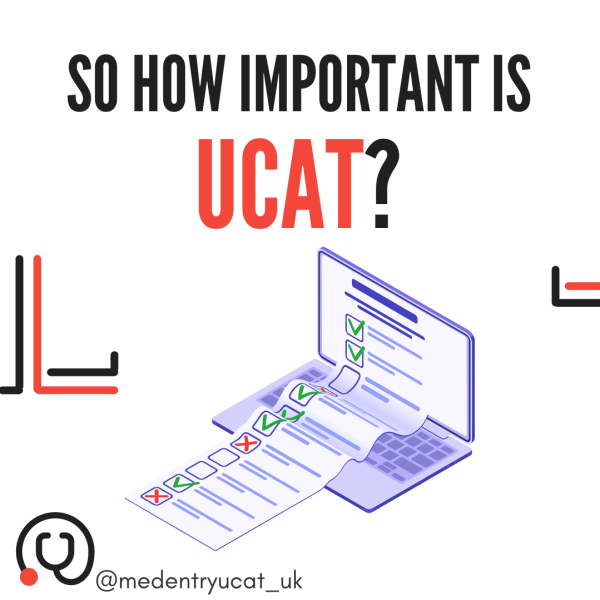How Important Is UCAT?

1 year ago by Stan
You might have heard of the UCAT, you might not, but chances are you will have to sit it to apply to medicine. So how important is the UCAT?
The UCAT exam is an aptitude test used by many UK medical and dentistry schools as part of their application process. It is an extremely important part of the application process and is not just a tick box exercise. The way it is used varies between universities, however it is significant in many ways, which are explored in this blog.
1. Getting an interview
If you apply to a UCAT requiring university, it will be used as part of the scoring system in ranking students for getting an invitation to interview. It may be used in various ways, for example, a cut off score, a cut off score and then a ranking system, or just as part of the ranking system.
At several medical schools, once a candidate has met the required academic grades (predicted or achieved A-Levels and GCSEs), the UCAT alone is used to shortlist students for interview. This means that an exact cutoff score will be used. Examples of universities that use UCAT in this manner include Newcastle, Sheffield, Bristol, St George’s, Plymouth and Glasgow.
At other medical schools UCAT is weighted in various ways for selection to interview:
-
Nottingham – 79% UCAT, 21% GCSEs
-
Edinburgh and Leicester – 50% UCAT, 50% GCSEs
At some medical schools, like Keele, once the UCAT cut off score has been reached, other parts of the application process are used in selecting students for interview. At Keele this cut off score is the bottom two UCAT deciles for that year. Following this, students are ranked on their Roles & Responsibilities (R&R) forms.
2. Scoring in a ‘virtual’ station at interview
As part of the interview process, universities will often use the UCAT Situational Judgement Test band and other sections of the UCAT as a virtual station to add to the overall score achieved at interview. For example, at the University of East Anglia (Norwich Medical School), the UCAT is used as 50% of post interview weighting and a student’s Situational Judgement band is used as a virtual MMI station. For the UCAT Situational Judgement Test this is often a very easy way to achieve full marks on one of the interview stations!
3. Not getting an instant rejection
At many medical schools, achieving a band 4 in the UCAT Situational Judgement Test results in an automatic rejection, so ensuring you do well in this UCAT subtest is very important! Note there are universities which will still consider you with a band 4, for example, Newcastle University.
However, the UCAT exam is not the be all and end all, and the importance of it really depends on where you apply. If you do not achieve the UCAT score you had hoped for you can still get into medicine. Consider applying to somewhere that puts less weighting on UCAT and more on to A levels, GCSEs or personal statement.
Finally, remember that while the UCAT is important, there are other options if you do not do well!


